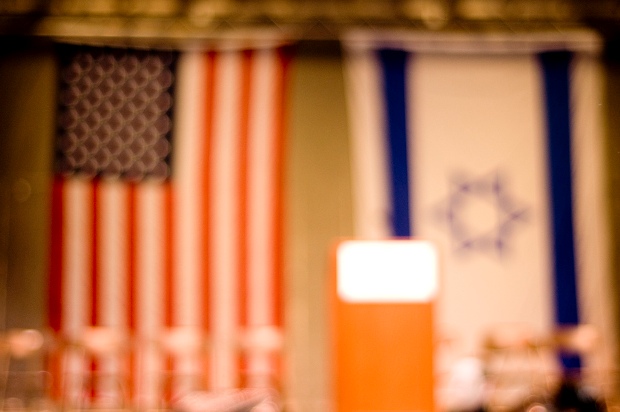My piece on last weekend’s Haaretz Magazine, and some other thoughts on the issue
While visiting New York last year, I got into a long political conversation with a friend, after which he invited me to dinner at his house. “But you must promise me we won’t discuss Israel,” he warned me. “It might ruin the evening.” About the same time, a friend wanted to introduce me to her new Jewish-American partner. “The one thing we can’t talk about is Israel,” I was told.
I wasn’t the last time I heard such comments. In other cases, I saw people get extremely upset, even hostile, when arguing about Israel. I knew that Israel was a complicated issue for Jews, but it seems that in recent years, the debate over Israel has become so polarized and tense, that it’s gotten to a point where many people would rather avoid it altogether.
When I got back to Israel, I offered my editors in Haaretz to write a piece about this issue. I spent a long time speaking to scholars, community leaders, activists and writers. Some of them were quoted in my piece, many weren’t. The interesting thing was that nobody – not even one person – denied the problem. Furthermore, once the article was published, people commented on one detail or another, but once again, the feeling that reform and conservative Jews have a tough time reaching a consensus over the role of Israel in their community was something that everyone shared:
“Our communities have really been torn apart surrounding Israel,” says [retired Rabbi Sheldon] Lewis. “People have attacked each other personally, friendships have ended, people have left synagogues because of it and have even disappeared entirely from the community. When I was a community rabbi I experienced that myself. The film festival may have been the most dramatic and well-known incident, but things have been going downhill for years.”
This is from writer Eric Alterman:
“In the past, you could say to liberal friends who criticized Israel ‘What would you do if you were in their place?'” says Alterman. “After all, no country would agree to undertake security risks [like] those that are required from Israel. But in recent years it’s more and more difficult to say it. It’s much more complicated to justify the raid on the Turkish flotilla, or the way Israel handled Gaza, or the attacks on human rights organizations. It looks like we we’re reaching a point where liberal American Jews will be forced to choose between their values and their emotional attachment to Israel. And many, alas, are going to stick with their values. There’s a sense of failure of an idea with regards to Israel. This is something very painful for me to say.”
You can read the entire piece here.
———————-
Defining the problem is easier than reaching a conclusion on its political implications. More than anything, I felt a growing cultural gap between Israel and American Jews, and cultural issues manifest themselves politically in unexpected ways.
What was most interesting for me was to hear so many people saying that violations of civil and human rights in Israel contradict Jewish values. I expected people to speak of political values, and identify themselves as Liberals, and therefore at odds with the current trends in Israeli politics, but I realized that what I call liberalism was, for many people I’ve spoken to, part of their cultural and even religious identity as Jews.
Which makes things even more complicated.
Israel was never a very liberal place. Until the 80’s, the Israeli left had nothing to do with liberalism (one could probably argue that the Likud was more liberal than Mapai, the old Labor party). Liberals (in the American sense of leftwing politics) took the lead in Israeli politics only for a brief moment in the 90’s, when, during Rabin’s government, they got some important laws passed and benefited from a very active Supreme Court.
By the end of the decade, it was all over. Netanyahu’s government with its racist laws and the toxic atmosphere it spreads is just part of a process that has been going on for more than a decade. In a way, I think that liberal Jews in the US wanted to see something of them in Israel, and recently, they are having a hard time finding it. That is the reason for all the anger and frustration.
I would be very careful to conclude that this process will damage Israel’s ability to gain political support in the US, or to advocate its policies in Washington. Many people I’ve spoken to said that the evangelical right more than makes up for the loss of Jewish support for Israel – if there is such a loss. I tend to agree. Also, Israeli politicians are extremely capable at manipulating the anxieties of American Jews, as Netanyahu’s successes in confronting pressure from the White House regarding construction in East Jerusalem has taught us. Yes, many Jews resent Avigdor Lieberman, but only a few would translate these feelings to positions that have something to do with the political reality.
This is not to say that Israel doesn’t face a major diplomatic crisis – only that this crisis has to do with the growing desire in other parts of the American establishment to see the end of the occupation. Even more important is the rest of the international community, which is clearly impatient with Jerusalem. But this dynamic won’t be affected by the difficulties of a Newton synagogue with hosting a political debate or by the backlash following a show at a Jewish theater in DC. The problem of liberal American Jews with Israel will remain what it is – a problem of American Jews.


